A New Order? Europe’s Emerging Security Landscape
Stockholm Free World Forum’s Annual Conference, November 9 2015
On November 9th, Stockholm Free World Forum (SFWF) held its yearly conference. The aim of this year’s event was to discuss the new security situation emerging in and around Europe after the annexation of Crimea and the following war in Ukraine. The conference sessions focused on the deteriorated security situation around the Baltic Sea, the ongoing war in Ukraine and the future of transatlantic cooperation while addressing a number of issues:
The Future of Nordic-Baltic Security: Regional cooperation or a stronger transatlantic link?
The Next Administration: What is the future of US military presence in Europe?
The Attraction of Authoritarianism: How does Russia inspire authoritarianism abroad?
After Ukraine: How will Russia move forward as a geopolitical actor?
Read the press release from the conference here.
See the video recordings of the conference sessions here.
Speakers
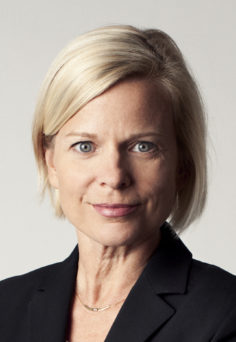
Anna Wieslander is Deputy Director at the Swedish Institute of International Affairs (UI). She has a broad range of experience within the public and private sectors.
Anna has previously held positions as Head of the Speaker´s Office at the Swedish Parliament, Secretary of the Swedish Defence Commission and Deputy Director at the Swedish Defence Ministry. She has also been a Communications Director in the private sector and a newspaper journalist. Her expertise is in security and defence policy, NATO and PfP, the transatlantic link, and defence industry issues.
Anna holds an IB exam from United World College of the American West, a BA in Journalism from Gothenburg University, and a MA in Political Science from Lund University. She has also worked as a researcher at the Swedish Institute of International Affairs and the Swedish Defence Research Agency, and has been published extensively.
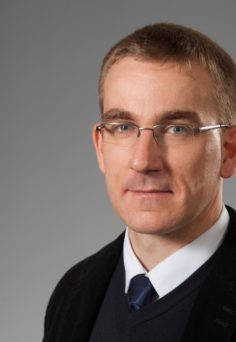
András Rácz is Senior Research Fellow at the Finnish Institute of International Affairs (FIIA) in Helsinki. A specialist in Russian and post-Soviet security policy, he defended his Ph.D in Modern History at the Eötvös Loránd University in Budapest in 2008. Until 2014 he worked at the since-disbanded Hungarian Institute of International Affairs. In addition, András has served as Assistant Professor at the Pázmány Péter Catholic University. He was a member of the European Foreign and Security Policy Studies Programme (EFSPS) of the Volkswagen Foundation and Visiting Fellow at the Transatlantic Academy of the German Marshall Fund in Washington D.C. from 2011-2012. He recently finished an extensive report titled ‘Russia´s Hybrid War in Ukraine: Breaking the Enemy´s Ability to Resist’ that is available on the Finnish Institute of International Affairs website.
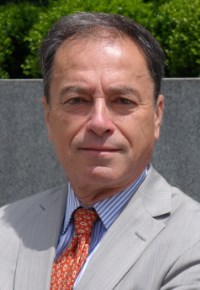
András Simonyi is the Managing Director of the Center for Transatlantic Relations at the School of Advanced International Studies at Johns Hopkins University in Washington, D.C. He is an economist by training and holds a Ph.D in political science. He has had a long professional career in multilateral and bilateral diplomacy, international non-governmental and governmental organizations, and the private sector. Ambassador Simonyi was Hungary’s first Permanent Representative to the North Atlantic Council as well as its ambassador to the United States.
Ambassador Simonyi has a strong personal attachment to the Nordic countries, having grown up in Denmark. He sees the Nordic countries as the “stem cells” of western democracies and is an advocate of Swedish and Finnish membership in NATO.
He is a passionate proponent of democracy and human rights as key pillars of the resilience of modern societies. Ambassador Simonyi is a frequent speaker on security, energy policy, human rights and democracy. He is a regular writer for the Huffington Post, a commentator on Newsmax and other outlets. He has also been a guest on the Colbert report, one of America’s most popular TV shows.
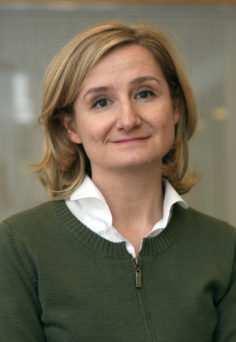
Carolina Vendil Pallin is the Deputy Research Director at the Swedish Defence Research Agency (FOI), heading its research program on Russia. She holds a Ph.D from the London School of Economics and has previously worked as a Senior Research Fellow at the Swedish Institute for International Affairs (UI) where she led the research program ”Russia and Its Neighbourhood” from 2006–2009. She has also been an Expert Advisor for the Swedish Defence Commission (2012–2013) and is a member of the Royal Swedish Academy of War Sciences, serving on its Editorial Committee.
Her recent publications include ‘The Basis for Institutions Among the Population in Russia’ in Oxenstierna, S. (ed.) The Challenges for Russia’s Politicized Economic System (Routledge, 2015); Military Thinking in the 21st Century, (co-edited with Gudrun Persson and Tommy Jeppsson, Royal Swedish Academy of War Sciences, 2015); Russian Military Capability in a Ten-Year Perspective – 2013 (co-edited with Jakob Hedenskog, FOI Report, 2013); The Russian Armed Forces in Transition: Economic, geopolitical and institutional uncertainties (co-edited with Roger McDermott and Bertil Nygren, Routledge, 2012) and Russian Military Reform: A Failed Exercise in Defence Decision Making (Routledge, 2009).
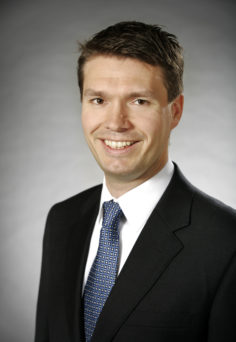
Charly Salonius-Pasternak is a Senior Research Fellow at the Finnish Institute of International Affairs. Since 2005 his work at FIIA has focused on Nordic security and defense policy (including international crisis management operations), transatlantic relations (including NATO) and U.S. foreign and domestic policy. Recently, he has focused on Finnish-Swedish defense cooperation and the evolution of US and NATO alliance reassurance approaches in light of changes to the new regional security situation.
From 2009-2010 Charly served in the Finnish Defence Command as the international affairs adviser to the senior leadership of the Finnish Defence Forces. He lectures at national defence courses as well as to various civilian and military audiences. From 2002-2003 he was a visiting lecturer at Tufts University and taught a course on peacekeeping and nation building.
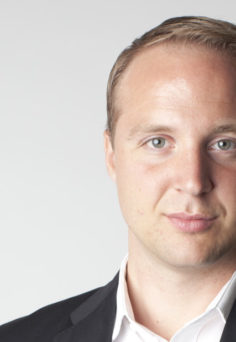
Erik Brattberg is the Director for Special Projects and Senior Fellow at The McCain Institute for International Leadership in Washington as well as the Director for the Global Business and Trade program at the Stockholm Free World Forum. He is also the 2014 recipient of the Ronald D. Asmus Policy Entrepreneur Fellowship at the German Marshall Fund. Previously, Mr. Brattberg served as a Senior Fellow at the Brent Scowcroft Center on International Security at the Atlantic Council, Visiting Fellow at the Center for Transatlantic Relations at the Paul H. Nitze School of Advanced International Studies (SAIS) at Johns Hopkins University, and as an associate researcher at the Swedish Institute of International Affairs in Stockholm. Mr. Brattberg has written widely on U.S. and European foreign and security policy and transatlantic relations, and his articles have been published in The Washington Post, Politico, Foreign Policy, The National Interest, and The American Interest. He regularly provides commentary to media agencies including Al Jazeera, BBC, Bloomberg, CNBC, Deutsche Welle, France 24 and Radio Sweden. He holds a Master of Science in Foreign Service (MSFS) from Georgetown University’s School of Foreign Service where he attended as a Fulbright and Marcus Wallenberg scholar.
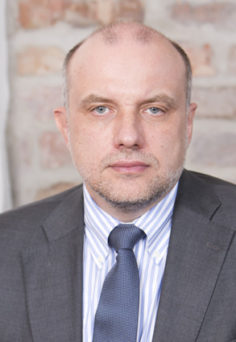
Jüri Luik has been the Director of ICDS since August 2015. Prior to that he held a number of posts as both a cabinet-level politician and a professional diplomat. From 2012 and 2015 he served as Ambassador of Estonia to the Russian Federation and from 2007 to 2012 he served as the Ambassador and Permanent Representative of the Republic of Estonia in the North Atlantic Council. Prior to that he served as the Ambassador of Estonia to the United States co-accredited to Mexico and Canada. In the Estonian Government, he served as Minister of Foreign Affairs (1994–1995), twice as Minister of Defence (1993 and 1999–2002), and as Minister without Portfolio he led the government delegation for negotiations with Russia over the withdrawal of Russian troops (1992–1994). He was elected to the Estonian Parliament in 1992 and holds the diplomatic rank of Ambassador. He graduated from the University of Tartu with a degree in journalism in 1989 and from 1995–1996 was a Visiting Associate at the Carnegie Endowment for International Peace in Washington, D.C.
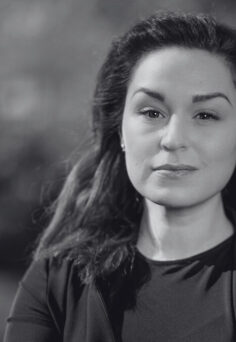
Katarina Tracz is senior fellow at Stockholm Free World Forum and a security and defense analyst and strategic communications adviser. She has wide experience of foreign and security policy analysis, focusing particularly on NATO and transatlantic affairs. She is an active contributor to the debate on foreign and security policy in Swedish and international media, and has published several reports, articles and OP-EDs in major Swedish and International publications. She is currently running her own consultancy firm. Previously, she has held positions as, amongst others, Director of the Stockholm Free World Forum, Marshall Memorial Fellow at the German Marshall Fund of the United States and International Research fellow at The McCain Institute for International Leadership.
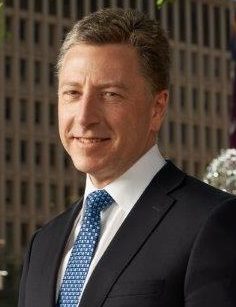
Kurt Volker is a leading expert in U.S. foreign and national security policy with some 30 years of experience in government, academia, and the private sector. Ambassador Volker serves as Executive Director of The McCain Institute for International Leadership in Washington D.C., a think tank in cooperation with Arizona State University. He is also a non-resident Senior Fellow at the Center for Transatlantic Relations at Johns Hopkins University’s School of Advanced International Studies, a Senior Advisor at the Atlantic Council, and a Trustee of IAU College in Aix-en-Provence, France. He is a consultant to international business, a member of the Board of Directors of Capital Guardian Funds Trust, and had previously served as International Managing Director for BGR Group. He has also taught a course on Transatlantic Relations at the George Washington University Elliott School of International Affairs.
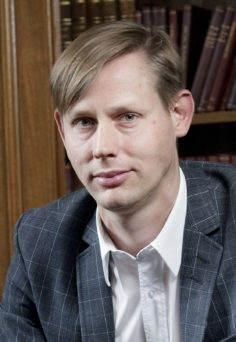
Magnus Christiansson is Associate Lecturer in the Department of Strategy at the Swedish Defence University. His main interests are transatlantic security, risk studies and security in the Baltic Sea region. He is currently writing a dissertation on civil-military norms at the strategic level in Sweden and the U.K. His recent publications include Strategic Surprise in the Ukraine Crisis (Swedish Defence University, 2014); “The Partnerfication of NATO: From Wall-building to Bridge-building?” in Flockhart (ed.), Cooperative Security – NATO’s Partnership Policy in a Changing World (Danish Institute for International Affairs, 2014); “Pooling, Sharing and Specializing: NATO and International Defence Cooperation” in Hallams, Ratti, & Zyla (eds.); NATO beyond 9/11 (Palgrave Macmillan, 2013); ”The Military Balance in the Baltic Sea Region – Notes on a Defunct Concept” in Fels, Kremer & Kronenberg (eds.) Power in the 21st Century (Springer, 2012). He regularly comments on the NATO question in Swedish media and is a regular guest lecturer at national and international conferences. From 2006-2009 Magnus Christiansson served as the Secretary General of the Swedish Atlantic Council.
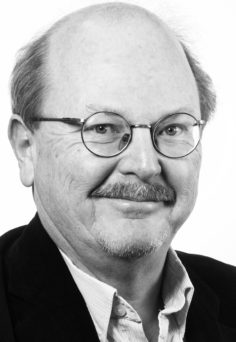
Mats Johansson founded the Stockholm Free World Forum in 2011. At that time he was a Member of Parliament serving on the Foreign Affairs Committee (2006-2014) for the governing Moderate party. As a Standing Rapporteur in the Parliamentary Assembly of the Council of Europe 2011-2013 he published a report about the state of media freedom in Europe. As chairman of the Swedish parliamentary network for the Baltic states he has been decorated by the republics of Estonia, Latvia and Lithuania.
In 2015 Mats started the Stockholm Free World Forum’s Foreign Policy Academy, creating an educational unit of the think tank for students and young politicians and serving as the academy’s first principal. Mats has also returned to journalism as a columnist in various papers and magazines. He has also been a member of The Mont Pelerin Society since 1990. He has previously served as Political Editor-in-Chief of the leading daily Svenska Dagbladet and as CEO/Publisher of the free market think tank Timbro.
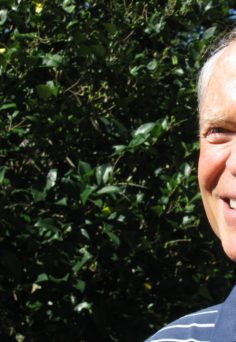
Michael Haltzel is Visiting Senior Fellow at the Finnish Institute of International Affairs and Senior Fellow at the Center for Transatlantic Relations, Johns Hopkins University SAIS. From 1994 to 2005, Dr. Haltzel served as Democratic Staff Director of the Senate Foreign Relations Committee’s Subcommittee on European Affairs and senior advisor to U.S. Vice President (then-Senator) Joseph R. Biden, Jr. From 2009-2010 he headed U.S. Government delegations to three OSCE review conferences in Warsaw, Copenhagen, and Vienna.
Other previous positions include Chief of the European Division of the Library of Congress, Director of West European Studies of the Woodrow Wilson Center, Vice President for Academic Affairs at Longwood University (Virginia), and Deputy Director of the Aspen Institute in Berlin.
In addition to authoring Der Abbau der deutschen ständischen Selbstverwaltung in den Ostseeprovinzen Russlands 1855-1905 (Marburg, 1977), Dr. Haltzel has coauthored, edited or coedited nine other books. His op-eds have appeared in the New York Times, Washington Post, and Los Angeles Times, and he is a frequent commentator in U.S. and European electronic media, including blogging for the Huffington Post.
He received a B.A. from Yale, and an M.A. and Ph.D. from Harvard. Dr. Haltzel has been decorated by seven countries of the European Union.
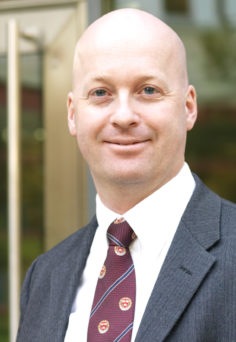
Mike Winnerstig is Deputy Director of Research, Defence Analysis Division, at the Swedish Defence Research Agency (FOI). He is also a member of the Royal Swedish Academy of the War Sciences and has a Ph.D in Political Science from Stockholm University. He has previously been a Guest Researcher at the Centre for Defence Studies at Aberdeen University (1994) and the Stiftung Wissenschaft und Politik in Germany (1995), as well as a Research Fellow at Harvard University (1997–1998). Between 1993 and 1999 he was a Researcher at the Swedish Institute of International Affairs. His research focuses on US defence and security policy, NATO and security developments in the Baltic Sea region.

Oscar Jonsson is a Ph.D candidate and guest lecturer at the Department of War Studies, King’s College London, as well as a freelance writer and consultant. His research focuses on the Russian understanding of war and how warfare is changing in light of technological developments. He has written on Swedish defence policy and European security policy and as a consultant has performed risk analysis and written reports for a hedge fund. Oscar holds an MA with Distinction in International Peace and Security from King’s College London and a BA in Peace and Conflict Research from Uppsala University.
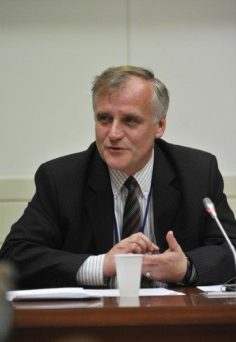
Robert Pszczel is a graduate of the London School of Economics and Warsaw University Department of International Relations. After a short career in the media he joined the Polish Ministry of Foreign Affairs in 1990. Pszczel was also a member of the Polish team for European Union accession talks from 1997-1999. He has worked in Brussels, including in the Polish Delegation to NATO as a Political Counsellor and Senior Press Officer in Press and Media, IS at NATO headquarters. From 2010-2015 he served as Director of the NATO Information Office (NIO) in Moscow and is currently the Acting Head of NIO.
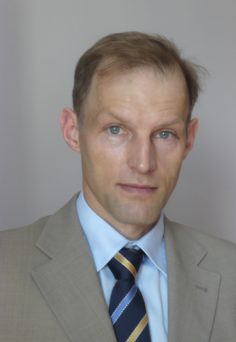
Wojciech Zajączkowski was born in Bydgoszcz, Poland in 1963. In 1987 he graduated from the Catholic University of Lublin with a degree in history. He obtained a Ph.D in politics from the Polish Academy of Science in 1999. During the 1990s he worked as an expert at the Centre for Eastern Studies (CEE) and later as a director of the CEE Forum at the Stefan Batory Foundation. Mr. Zajączkowski has been working for the Polish Ministry of Foreign Affairs (MFA) since 1998; his posts have included councellor in Moscow and Kiev, deputy ambassador in Kiev and chargé d’affaires in Turkmenistan. He also headed the Eastern Department of the MFA and was appointed a chief advisor to the Prime Minister on energy security. He served as the Polish Ambassador to Romania from 2008-2010 and Russia from 2010-2014. Since Sept 2014 Mr. Zajączkowski has headed the MFA’s Department for Foreign Policy Strategy.